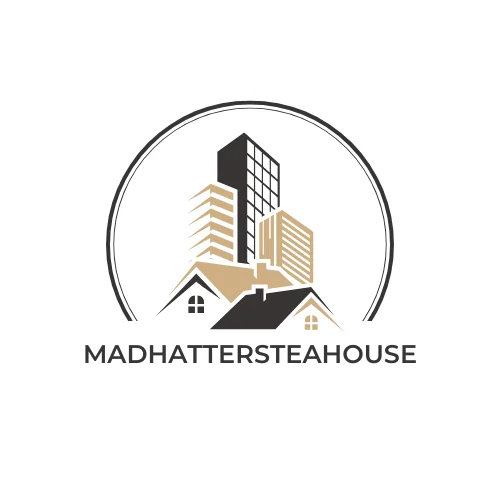In the fast-paced world of real estate, prospecting isn’t just a buzzword; it’s the lifeblood of success. Imagine trying to sell ice to an Eskimo without knowing where to find them—pretty tricky, right? That’s why mastering the art of prospecting can turn a struggling agent into a superstar. It’s not just about cold calls and door knocks; it’s about building relationships and finding those hidden gems in the market.
Table of Contents
ToggleUnderstanding Real Estate Prospecting
Real estate prospecting involves identifying potential clients and opportunities within the market. Agents utilize various strategies to connect with individuals interested in buying or selling properties.
What Is Real Estate Prospecting?
Real estate prospecting refers to the process of seeking out potential buyers and sellers. This proactive approach allows agents to build a network of contacts. Utilizing various methods, including referrals, social media outreach, and community events, agents can gather valuable leads. Networking within local communities enhances visibility and fosters relationships. Engaging with potential clients through informative content also positions agents as trusted resources.
Importance of Real Estate Prospecting
Prospecting plays a vital role in an agent’s success within the competitive real estate market. Effective prospecting establishes a consistent pipeline of leads, reducing reliance on unpredictable referrals. Building relationships often leads to repeat business and valuable word-of-mouth referrals. Prospective clients are more likely to engage with agents who maintain ongoing communication and demonstrate industry expertise. Prioritizing prospecting efforts contributes to overall business growth and stability.
Techniques for Effective Prospecting
Effective prospecting employs various techniques that help agents connect with potential clients and seize market opportunities. Focus on the following strategies to enhance prospecting efforts.
Cold Calling
Cold calling remains a widely used method in real estate prospecting. Agents can reach out to property owners or potential clients directly, fostering initial conversations. Researching neighborhoods or specific demographics can yield better results. Maintaining a friendly and approachable tone is crucial, as this encourages open dialogue. Approaching calls with a script can help agents cover essential points while keeping conversations natural. Tracking call outcomes assists agents in refining their strategies for future outreach. Consistent cold calling can result in valuable leads when executed with persistence and dedication.
Email Marketing
Email marketing acts as an effective tool for nurturing leads and maintaining communication. Agents can craft engaging newsletters filled with market insights, updates, and property listings. Personalization enhances engagement, encouraging recipients to feel special and connected. Segmenting email lists allows agents to tailor messages based on client interests, increasing relevance. Automating follow-up emails can simplify the process, ensuring timely outreach without overwhelming the agent. Including clear calls to action prompts recipients to reach out, further fostering potential client relationships. Regularly evaluating email performance metrics helps improve strategies over time.
Social Media Outreach
Social media outreach plays a significant role in connecting agents with potential clients. Platforms like Facebook, Instagram, and LinkedIn provide ample opportunities for agents to showcase their listings and expertise. Sharing content that includes market trends, home buying tips, and client testimonials enhances credibility. Engaging directly with followers through comments and messages builds rapport and trust. Agents should consider joining local groups to network effectively and share insights. Creating informative videos or virtual tours of listings captures the attention of a broader audience. Regular activity on social media can lead to increased visibility and stronger connections with prospective clients.
Tools and Resources for Prospecting
Effective prospecting relies on specific tools and resources that enhance agents’ capabilities. Utilizing the right technology streamlines processes and maximizes outreach.
CRM Software
Choosing robust CRM software can transform how agents manage leads. Popular options such as Salesforce or HubSpot help organize contact information and track interactions. These platforms automate tasks, allowing agents to focus on nurturing relationships. Customizable features enable users to segment leads based on various criteria, making targeted communication easier. Automated reminders for follow-ups ensure no potential client slips through the cracks. Real-time analytics within CRM systems provide insights into engagement, allowing agents to refine their strategies continuously.
Market Analysis Tools
Accessing market analysis tools is essential for understanding local real estate trends. Options like Zillow and Realtor.com offer data on property values and neighborhood statistics. Agents can analyze comparable sales to assess pricing strategies effectively. Tools like Redfin provide interactive maps that help visualize market dynamics. Analyzing trends in buyer preferences or emerging neighborhoods aids in identifying lucrative opportunities. Understanding these metrics empowers agents to make informed decisions that enhance their prospecting efforts.
By leveraging these technologies, agents can solidify their client relationships and improve overall effectiveness in prospecting.
Building a Prospecting Strategy
Establishing a solid prospecting strategy significantly improves an agent’s success. It involves identifying key elements that align with an agent’s business goals and market dynamics.
Identifying Your Target Market
Defining the target market requires thorough research. Agents analyze demographics and local trends to pinpoint potential clients. Focusing on first-time homebuyers, retirees, or investors allows for tailored marketing approaches. Understanding client preferences guides communication efforts and message effectiveness. Segmentation enhances engagement by creating targeted campaigns that resonate with specific audiences. Utilizing tools like market analysis platforms aids in identifying emerging neighborhoods or hot markets, ensuring agents connect with the right prospects.
Setting Goals and Metrics
Setting clear goals establishes a framework for prospecting efforts. Agents determine specific outcomes such as the number of leads generated or properties sold. SMART criteria—specific, measurable, achievable, relevant, time-bound—help ensure that goals are actionable. Tracking key performance indicators, such as conversion rates and response times, offers insights into areas needing improvement. Regularly reviewing progress allows for adjustments to strategies, ensuring that goals remain aligned with market conditions. Focusing on these metrics strengthens an agent’s ability to refine their approach and boost overall effectiveness.
Mastering real estate prospecting is essential for any agent aiming for long-term success. By implementing diverse strategies and leveraging technology, agents can create a steady flow of leads that not only boosts their visibility but also strengthens their client relationships.
A well-defined prospecting strategy tailored to specific market needs allows agents to engage effectively with potential clients. This approach not only enhances their reputation but also fosters trust, leading to repeat business and referrals.
Ultimately, prioritizing prospecting efforts is a game changer in the competitive real estate landscape. Agents who invest time and resources into these practices will find themselves well-equipped to navigate the ever-evolving market and achieve sustained growth.





